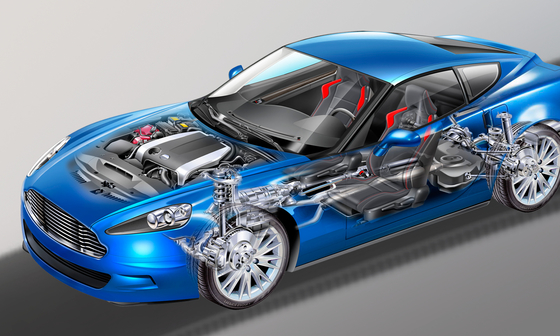The automotive https://istanbul-yanginmerdiveni.com/ industry stands at the forefront of innovation and transformation, driving technological advancements and reshaping the way we perceive transportation. From the invention of the automobile to the rise of electric vehicles and autonomous driving, this sector has continuously evolved to meet the changing needs and preferences of consumers worldwide.
Table of Contents
Introduction to the Automotive Industry
The automotive industry holds a significant place in the global economy, serving as a key driver of growth and development. With roots tracing back to the late 19th century, the industry has witnessed remarkable progress, revolutionizing mobility and shaping modern society.
Key Players in the Automotive Industry
At the heart of the automotive industry are major players such as Toyota, Volkswagen, and General Motors, which dominate the market with their extensive lineup of vehicles. In recent years, the emergence of electric vehicle companies like Tesla has disrupted the traditional landscape, challenging established norms and pushing the boundaries of innovation.
Technological Advancements in Automotive
Advancements in technology have revolutionized the automotive sector, paving the way for groundbreaking innovations such as artificial intelligence (AI) and the Internet of Things (IoT). These technologies are driving the development of autonomous vehicles, promising safer and more efficient transportation solutions.
Environmental Impact and Sustainability
Concerns about climate change and environmental degradation have prompted a shift towards sustainable transportation options. Electric vehicles, powered by clean energy sources, have gained traction as an eco-friendly alternative to traditional combustion engine vehicles, leading to a reduction in carbon emissions.
Market Trends and Consumer Preferences
Changing consumer preferences and market trends have shaped the automotive landscape, with a growing demand for SUVs and electric vehicles. Additionally, the rise of ride-sharing services has transformed the way people perceive ownership, influencing purchasing decisions and mobility patterns.
Challenges Faced by the Automotive Industry
Despite its rapid evolution, the automotive industry faces various challenges, including supply chain disruptions and regulatory hurdles. Issues such as semiconductor shortages and stringent emission regulations pose significant obstacles to manufacturers, impacting production and profitability.
Future Prospects and Innovations
Looking ahead, the automotive industry holds immense potential for innovation and growth, with developments such as self-healing materials and enhanced vehicle connectivity set to revolutionize the driving experience. These advancements promise to redefine mobility and shape the future of transportation.
Impact of COVID-19 on the Automotive Industry
The COVID-19 pandemic has had a profound impact on the automotive industry, causing disruptions in production and sales as lockdown measures and supply chain issues disrupted operations. However, it has also accelerated digital transformation efforts, driving the adoption of online sales platforms and contactless services.
Globalization and Trade Dynamics
Globalization has led to increased collaboration and partnerships within the automotive industry, enabling companies to leverage each other’s strengths and expand their market presence. However, trade dynamics remain volatile, with tariff wars and trade disputes posing challenges to international trade and investment.
Social and Cultural Influences
Social and cultural factors play a significant role in shaping automotive trends, with changing attitudes towards mobility and sustainability driving demand for alternative transportation solutions. As urbanization continues to rise, there is a growing emphasis on creating smart and sustainable cities with efficient transportation systems.
Safety and Security Concerns
With the proliferation of connected vehicles, safety and security concerns have become paramount, with cyber threats posing risks to vehicle systems and data privacy. As vehicles become increasingly autonomous, ensuring the integrity and resilience of automotive cybersecurity systems is essential to maintaining consumer trust and confidence.
Role of Government Policies
Government policies and regulations play a crucial role in shaping the automotive industry, with emission standards and incentives for electric vehicle adoption influencing market dynamics. By implementing supportive policies, governments can encourage innovation and investment in clean transportation technologies, driving sustainable growth.
Innovations in Vehicle Design and Manufacturing
Innovations in vehicle design and manufacturing are reshaping the automotive industry, with advancements such as lightweight materials and 3D printing technology revolutionizing production processes. These innovations not only improve fuel efficiency and performance but also enable greater design flexibility and customization.
Investments and Mergers in the Automotive Sector
The automotive sector is witnessing a wave of investments and mergers, as companies seek to consolidate their market position and capitalize on emerging opportunities. From traditional automakers acquiring technology startups to venture capital funding in EV companies, the industry is undergoing rapid transformation and restructuring.
Conclusion
In conclusion, the automotive industry is undergoing a period of profound transformation, driven by technological innovation, changing consumer preferences, and environmental concerns. From electric vehicles to autonomous driving technology, the future of transportation promises to be more sustainable, efficient, and interconnected than ever before.




